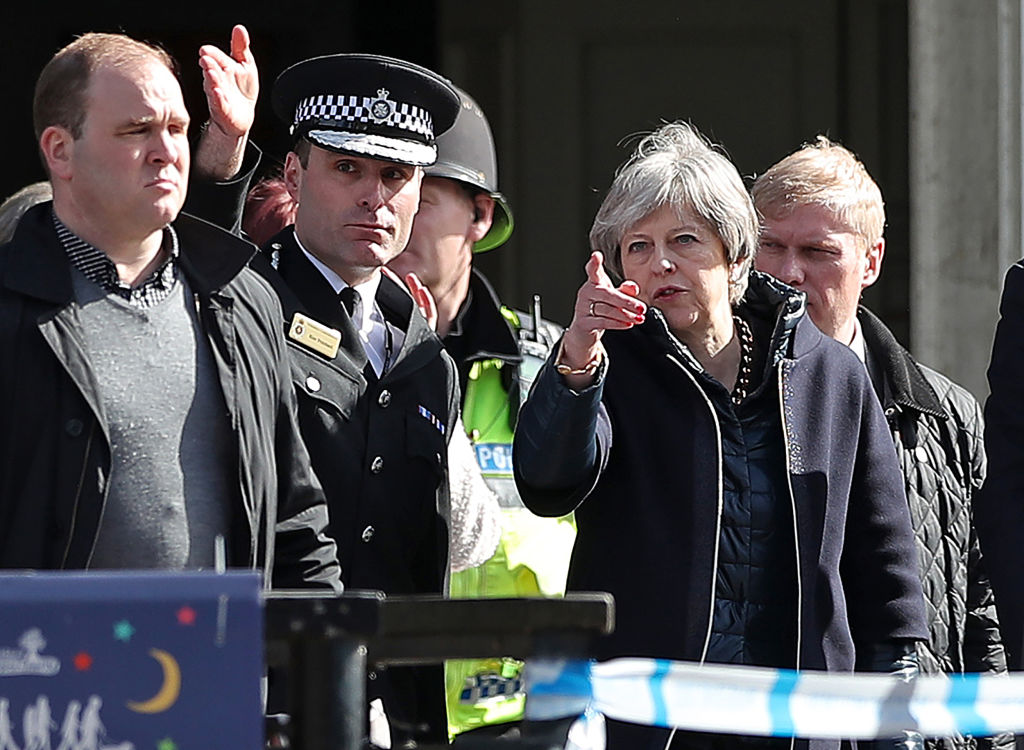Britain is now threatening to seize Russian oligarchs' luxury real estate after ex-spy's poisoning


A free daily email with the biggest news stories of the day – and the best features from TheWeek.com
You are now subscribed
Your newsletter sign-up was successful
As British investigators examine the theory that a deadly Soviet-developed nerve agent was put into the luggage of Yulia Skripal before she flew from Moscow to Britain on March 3 to visit her father, former Russian spy Sergei Skripal, the aftermath of their March 4 poisoning is spreading throughout Russia and the West. The Skripals, father and daughter, were found unconscious on a park bench in Salisbury, and 12 days later they are still in critical condition at a hospital. Britain blames the Kremlin for the brazen nerve agent attack.
On Thursday, the U.S., Germany, and France issued a rare joint statement condemning Russia for the attack, and on Friday, NATO and Australia said they stand with Britain, too. Russia responded Friday by threatening to expel British diplomats in retaliation for Britain's decision to kick out 23 Russian embassy employees it says are spies, and to add some number of Americans to its "black list" in reaction to the U.S. sanctioning 19 Russians and five companies for cyber-attacks. Britain also signaled it might hit Russian President Vladimir Putin's loyal allies where it hurts: their luxury "Londongrad" real estate.
Wealthy Russians started moving money into Britain in the mid-1990s, using murky shell companies to invest tens of billions of dollars in multimillion-dollar London mansions and other assets, like soccer teams and newspapers, The New York Times reports.
The Week
Escape your echo chamber. Get the facts behind the news, plus analysis from multiple perspectives.

Sign up for The Week's Free Newsletters
From our morning news briefing to a weekly Good News Newsletter, get the best of The Week delivered directly to your inbox.
From our morning news briefing to a weekly Good News Newsletter, get the best of The Week delivered directly to your inbox.
But on Wednesday, Prime Minister Theresa May vowed to "freeze Russian state assets" used to attack British citizens and crack down on "serious criminals and corrupt elites," adding, "There is no place for these people — or their money — in our country." Foreign Secretary Boris Johnson suggested Thursday that Britain might target Putin associates in a new anti-corruption drive. "If you start to take away Astons and Bentleys and huge apartments in Kensington, freezing those assets, people will care a lot more," Cliff Kupchan, chairman of Eurasia Group, tells the Times, and they'll let Putin know about it.
A free daily email with the biggest news stories of the day – and the best features from TheWeek.com
Peter has worked as a news and culture writer and editor at The Week since the site's launch in 2008. He covers politics, world affairs, religion and cultural currents. His journalism career began as a copy editor at a financial newswire and has included editorial positions at The New York Times Magazine, Facts on File, and Oregon State University.
-
 Political cartoons for February 7
Political cartoons for February 7Cartoons Saturday’s political cartoons include an earthquake warning, Washington Post Mortem, and more
-
 5 cinematic cartoons about Bezos betting big on 'Melania'
5 cinematic cartoons about Bezos betting big on 'Melania'Cartoons Artists take on a girlboss, a fetching newspaper, and more
-
 The fall of the generals: China’s military purge
The fall of the generals: China’s military purgeIn the Spotlight Xi Jinping’s extraordinary removal of senior general proves that no-one is safe from anti-corruption drive that has investigated millions
-
 Nobody seems surprised Wagner's Prigozhin died under suspicious circumstances
Nobody seems surprised Wagner's Prigozhin died under suspicious circumstancesSpeed Read
-
 Western mountain climbers allegedly left Pakistani porter to die on K2
Western mountain climbers allegedly left Pakistani porter to die on K2Speed Read
-
 'Circular saw blades' divide controversial Rio Grande buoys installed by Texas governor
'Circular saw blades' divide controversial Rio Grande buoys installed by Texas governorSpeed Read
-
 Los Angeles city workers stage 1-day walkout over labor conditions
Los Angeles city workers stage 1-day walkout over labor conditionsSpeed Read
-
 Mega Millions jackpot climbs to an estimated $1.55 billion
Mega Millions jackpot climbs to an estimated $1.55 billionSpeed Read
-
 Bangladesh dealing with worst dengue fever outbreak on record
Bangladesh dealing with worst dengue fever outbreak on recordSpeed Read
-
 Glacial outburst flooding in Juneau destroys homes
Glacial outburst flooding in Juneau destroys homesSpeed Read
-
 Scotland seeking 'monster hunters' to search for fabled Loch Ness creature
Scotland seeking 'monster hunters' to search for fabled Loch Ness creatureSpeed Read
